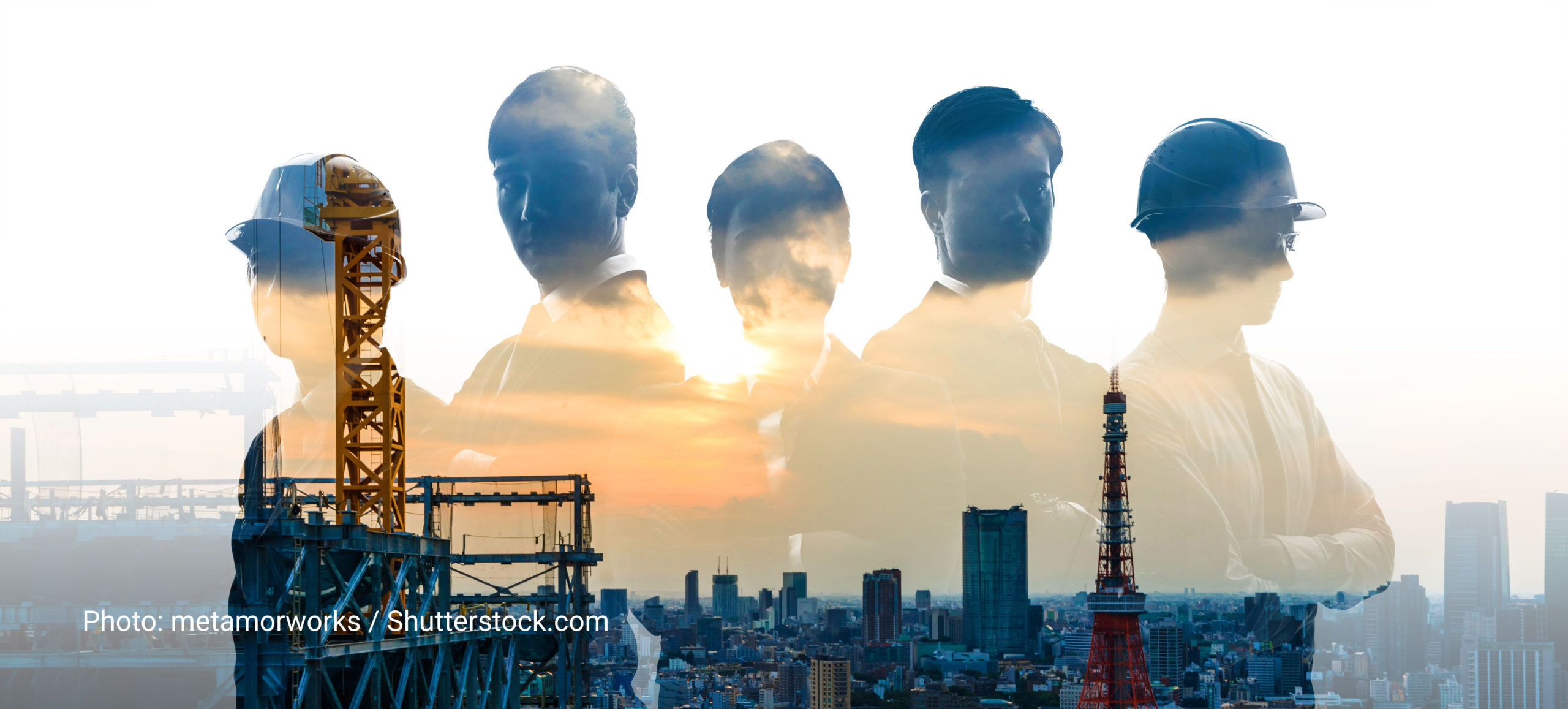Thorben Albrecht
Thorben Albrecht, Policy Director of IG Metall, the German metalworkers’ trade union. His responsibilities include strategies and policies as well as representing the interests of IG Metall’s more than 2 million members vis a vis political institutions in Berlin and Brussels. He has been a member of the “Global Commission on the Future of Work” established by the International Labour Organisation (ILO) as well as a State Secretary at the German Federal Ministry of Labour and Social Affairs.
Megatrends & their impact on the economy
Green and digital transformations are the megatrends in our economies for the years to come. The multiple crisis we are witnessing might make it more difficult to deal with these trends, but they are not changing their fundamental and transformative character. Rather the opposite is true: The coronavirus pandemic has sped up the use of digital technology in public administration as well as in office jobs across all sectors and remote work is there to stay. Supply-chain interruptions made companies introduce digital tools for better supply-chain. The Russian invasion in Ukraine with the following energy (price) crisis ultimately accelerated the transition to green energy in Europe.
Therefore, it is more than likely, that the green and digital transformation of our economies will go on and even gain speed in the coming years. If workers’ rights and interests are to be protected and even enhanced in these changes, we need strong trade unions that not only “defend” workers’ rights, but become drivers of a different path of transformation with more and better jobs as well as new workers’ rights.
Most services as well as manufacturing sectors will be affected by green and digital transformations. In some sectors, change is driven by digitalization. For example, the banking sector is changing through internet- and mobile-banking as well as with “fintech” companies competing traditional banks. In other sectors, de-carbonisation is the main driver: In energy intense industry like chemicals, cement or steel the need to find ways of green production is obvious if we want to meet our climate targets. At the same time, high energy prices might drive these industries to other places outside Europe, if renewables are not growing fast enough in Europe. Thus renewable energy, including green hydrogen, will have high growth potentials, especially if facilitated by supportive policies.
Very often the trends of digital and green transformations go along with each other: In tourism, we can see how travel-platforms are replacing traditional travel agencies on the hand while on the other “sustainable” and “eco-tourism” are gaining importance. De-carbonisation and digitalisation go hand in hand in the automotive industries, too, as cars do not only become electric, but more and more software-driven.
A changing world of work
These megatrends will also change the world of work. Change itself will be a fundamental pattern over the coming years. Volatility, uncertainty, complexity and ambiguity will prevail while multiple crisis will make developments even more complicated.
Adapting to new work patterns and new skill requirements will challenge workers in different sectors. Digital tools will become more important not only in office jobs, but also in factories, hospitality and care. While in the platform-economy algorithms themselves will become the “bosses”, “algorithmic management” will affect most sectors.
Job losses in traditional sectors and job gains in more green and digital sectors will increase the risk of workers being left behind. Growing inequalities might weaken growth and lead to erosion of social cohesion and societal polarization.
However, these risks can be met. Not by trying to stop the megatrends and conserve the status quo, but by influencing the way into the future. By giving workers a voice and defending their interests in a changing work-environment. By engaging in social struggles that protect workers from losing out in the changes taking place. By demanding that new technologies of clean production are also used to make jobs less dirty and dangerous, that growing productivity is paying off for workers, too, and that a sustainable economy includes social sustainability.
Trade unions as drivers of transformation
Trade unions traditionally are the best form of organizing workers interests in economic “revolutions” and also today can play a crucial role in the struggles going along with them – but only if they are up to date. This means that in a changing world of work, they should not try to prevent change to happen. Instead, they must be drivers of change to the better. Ready to confront new challenges and grab new opportunities. To do so, they also must be ready to change themselves.
Trade unions need to adjust to a growing diversity in the workforce. “New” and “old” types of workers as well as male and female, including also migrant workers or solo self-employed. To represent this diversity of workers is a challenge. It requires that trade union’s representatives must become more diverse. Even more important they have to find new ways to interact with workers and involve workers in decision-making and activities. Before starting into last year’s bargaining round the German metalworkers union IG Metall for example involved its members in setting up its demands and strike activities to make sure all different groups of workers would be involved.
Facing new types of employers is a challenge for trade unions, too. Labour platforms, start-up and “virtual” companies are less easy to confront. De-centralised and “virtual” organising and strikes have to complement traditional forms of industrial action. New “players” in a green economy have to be organised, too. In all these companies trade unions need to try to organise from “within” – supporting grass-root and self-organised activities of workers, even if they are not affiliated to unions in the first place. At “Lieferando”, a restaurant-to-home delivery service and the German branch of “Just Eat”, workers starting to organize against bad working conditions, then were supported by the German restaurant and hospitality union NGG, but only later became part of the union.
Trade unions also need to be ready to face new-challenges like new business models leading to fundamental re-structuring of companies as well as increased urgency of re- and upskilling. Thus, trade union- and workers-representatives themselves need new qualifications to not only understand these challenges, but to turn them into opportunities for workers. This might e.g. include “Union Learning Reps” on the shop floor that support workers to participate in qualification programmes. Set up first in the United Kingdom by the TUC they counsel workers about re-skilling possibilities, encourage them to participate and coach them during the training. This is essential especially for non- and low-skilled workers who might have no or negative experience concerning school and learning and thus might shy away from qualification or struggle to go through it.
Furthermore, we often see that management tends to involve those workers in re-skilling that already have an academic qualification, whereas low- or non-skilled workers are left behind. Also managements sometimes tends to rather close down a factory than looking for new green and digital products, clean ways of production or sustainable business models. Here trade unions can play a crucial role by demanding that for instance steel production is changed from coal to green hydrogen instead of phasing out production.
In general, trade unions should be drivers of change and workers interests in transitions: not reluctantly following trends and standing on the brake, but fight for their place at the steering wheel to have a say in which direction the world of work is changing.
-
 Thorben Albrecht
Thorben Albrecht
Thorben Albrecht is policy director at IG Metall. He was a member of the Global Commission on the Future of Work established by the ILO and a state secretary at the German Federal Ministry of Labour and Social Affairs from 2014 to 2018.




